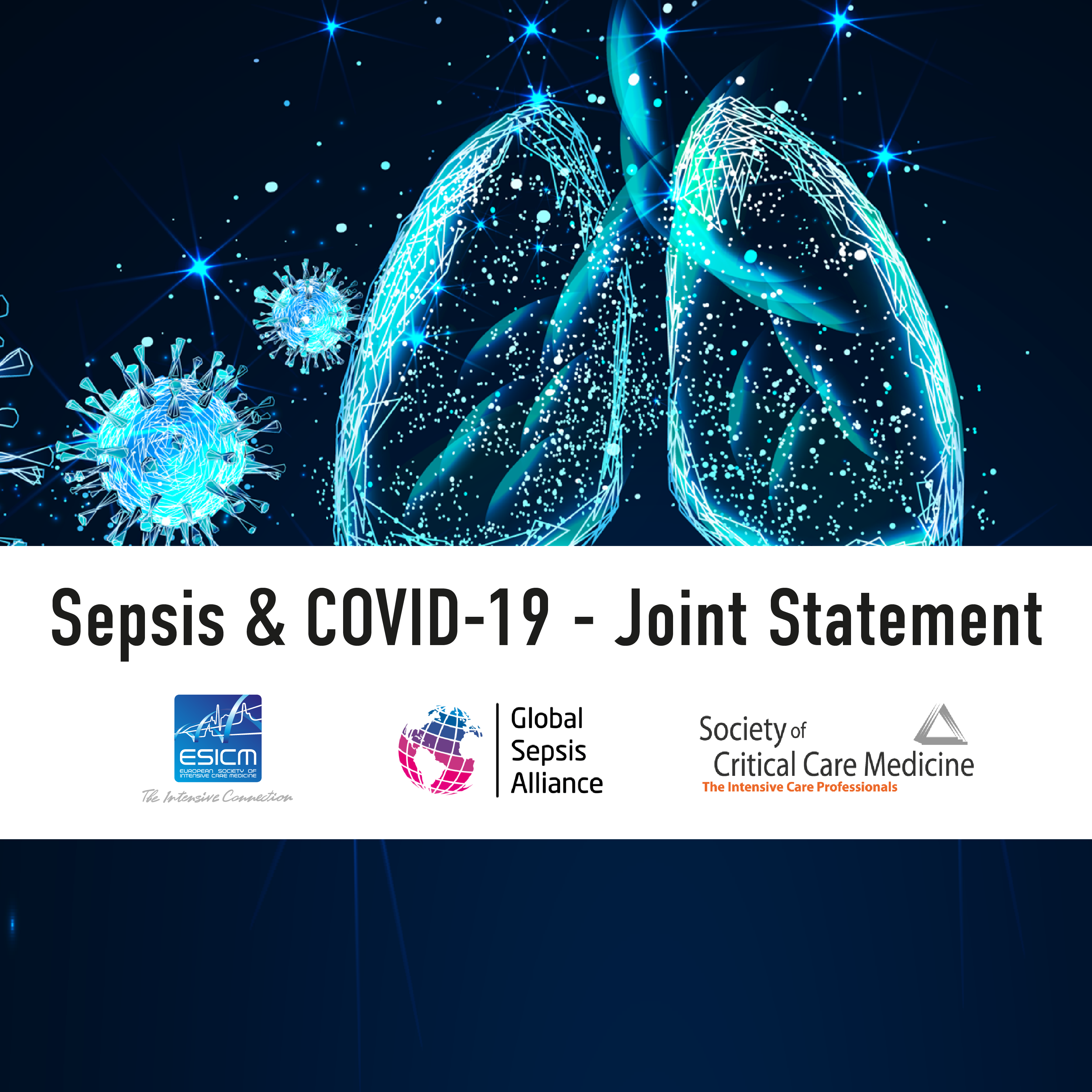ESICM, GSA and SCCM issue Joint Statement on COVID-19 and Sepsis

Read the consensus paper published in Intensive Care Medicine (ICM)
Today a consensus paper by ESICM, SCCM, and the GSA was published in Intensive Care Medicine, emphasising the importance of recognising that patients critically ill with COVID-19 have viral sepsis, despite some differences from sepsis caused by other pathogens.
The three organizations also warn that patients who survive other forms of sepsis suffer longer-term ill-effects similar to those of patients with “long-COVID”, although they are not equally well recognized.
Scientific literature demonstrates that longer-term effects of sepsis, known as post-sepsis syndrome, occur in up to 50% of sepsis survivors, who suffer from persisting physical, cognitive, and psychological sequelae.
What is Sepsis?
Sepsis is a whole-body inflammatory response to an infection.
Common signs and symptoms include fever, increased heart rate, increased breathing rate, and confusion. There may also be symptoms related to a specific infection, such as a cough with pneumonia, or painful urination with a kidney infection. In the very young, old, and people with a weakened immune system, there may be no symptoms of a specific infection and the body temperature may be low or normal rather than high.
Sepsis is caused by an immune response triggered by an infection. The infection is most commonly by bacteria, but can also be by fungi, viruses, or parasites. Common locations for the primary infection include lungs, brain, urinary tract, skin, and abdominal organs. Risk factors include young or old age, a weakened immune system from conditions such as cancer or diabetes, and major trauma or burns.